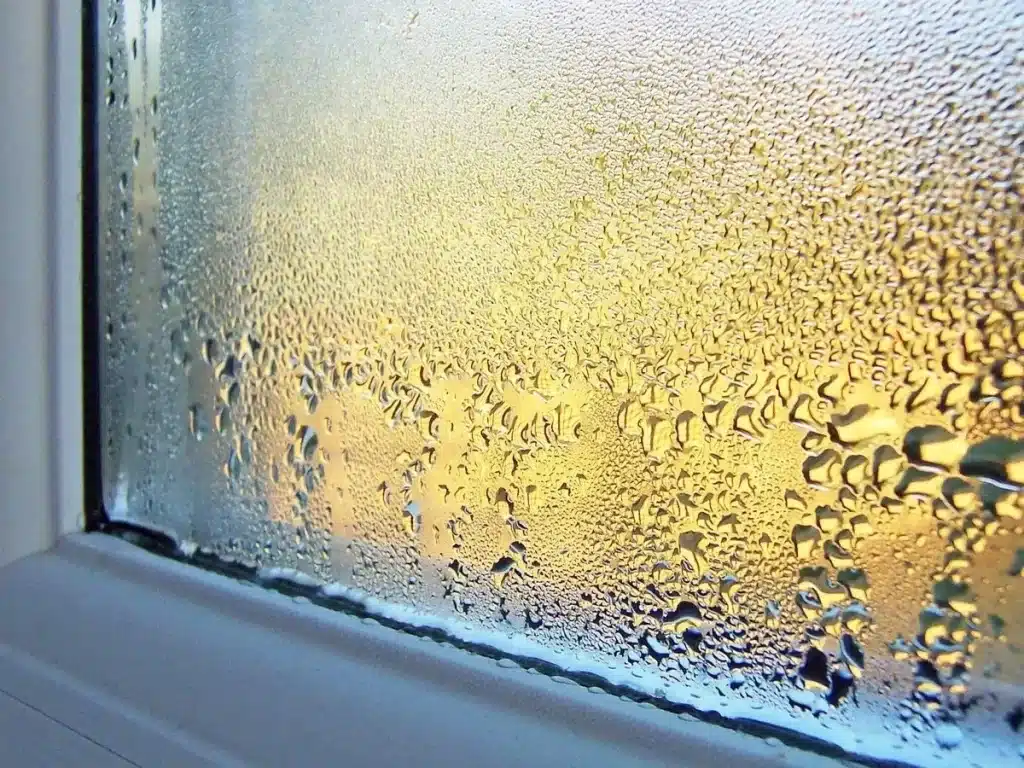Double glazing be fixed—this is a question many homeowners ask when facing condensation between the glass layers. This common issue happens due to temperature differences between the interior and exterior surfaces, causing moisture to appear. While completely preventing condensation can be difficult, there are effective ways to reduce and manage it. In this article, we’ll highlight practical solutions for dealing with condensation in double glazing and answer the most common questions surrounding it.
Understanding Condensation in Double Glazing
Before diving into solutions, it’s essential to understand why condensation occurs in double glazing. Double-glazed windows consist of two panes of glass with a sealed air gap in between. This design helps to insulate your home and improve energy efficiency. However, when the seal around the panes fails or when there is a significant difference between indoor and outdoor temperatures, condensation can form inside the air gap.
So, can condensation in double glazing be fixed? The answer is yes, but the effectiveness of the solution will depend on the severity of the issue and the specific circumstances of your windows. Here are some practical steps you can take to address condensation in double glazing:
1. Improve Ventilation
Can condensation in double glazing be fixed? Improving ventilation in your home is a crucial step. Proper airflow helps to balance indoor humidity levels and reduce condensation. Ensure that you use extractor fans in kitchens and bathrooms to expel moisture-laden air. Additionally, consider opening windows regularly to promote air circulation.
2. Use Dehumidifiers
Dehumidifiers are effective tools for controlling moisture levels in your home. If you’re dealing with condensation issues, placing dehumidifiers in areas prone to excess moisture can help manage the problem. Follow the manufacturer’s instructions for optimal use and maintenance.

3. Increase Heating
Can condensation in double glazing be fixed? Keeping your home adequately heated can help maintain a consistent temperature and reduce the likelihood of condensation. Pay particular attention to colder areas or rooms and adjust your heating system accordingly. Consistent heating helps to prevent the temperature differential that causes condensation.
4. Install Ventilation Systems
Mechanical ventilation systems, such as heat recovery ventilation (HRV), can be beneficial in reducing humidity levels and minimizing condensation. These systems provide continuous air exchange, helping to maintain a balanced indoor environment.
5. Check Window Seals
One common cause of condensation in double glazing is compromised window seals. Ensure that the seals around your double-glazed windows are intact and not deteriorated. Damaged seals can allow moisture to enter the gap between the glass panes, leading to condensation. If the seals are compromised, they may need to be replaced.
6. Replace Desiccant Sachets
Some double-glazed units contain desiccant sachets inside the spacer bar. These moisture-absorbing packets can become saturated over time, reducing their effectiveness. If your window design allows, you may consider replacing or regenerating the desiccant to maintain optimal performance.
7. Upgrade Windows
Can condensation in double glazing be fixed? If your double-glazed windows are old or of lower quality, upgrading to more energy-efficient windows might be a solution. Modern windows with advanced features, such as low-emissivity (Low-E) coatings, can help minimize condensation and improve overall energy efficiency.
8. Secondary Glazing
Installing secondary glazing is another effective method to combat condensation. This involves adding an additional pane of glass to your existing windows. Secondary glazing enhances insulation and creates an extra barrier, which can help reduce condensation.

FAQs
1. What causes condensation in double glazing?
Condensation in double glazing is caused by a difference in temperature between the inside and outside of the glass. When the temperature inside your home is significantly higher than outside, moisture can form inside the sealed unit between the glass panes.
2. How can I prevent condensation in double glazing?
To prevent condensation, improve ventilation in your home, use dehumidifiers, maintain consistent heating, and ensure that your window seals are intact. Upgrading to energy-efficient windows or installing secondary glazing can also help reduce condensation.
3. Can I fix condensation between the glass panes myself?
In many cases, fixing condensation between the glass panes requires professional assistance. If the issue is due to a failed seal or a problem with the desiccant sachets, it’s best to contact a reputable glazing company for a proper assessment and solution.
4. How do I know if my window seals need replacing?
If you notice fogging or condensation between the glass panes of your double-glazed windows, it could indicate that the seals are compromised. Inspect the seals for any visible damage or deterioration. If you suspect that the seals are the issue, it’s advisable to seek professional help for replacement.
5. How often should I replace desiccant sachets in double glazing be fixed?
Desiccant sachets in double-glazed units should be replaced or regenerated as needed. If you notice persistent condensation despite other measures, it might be time to check and replace the desiccant sachets.
In summary, can condensation in double glazing be fixed? Yes, there are several methods you can employ to address and manage condensation issues in double glazing. From improving ventilation and using dehumidifiers to upgrading windows and checking seals, there are various solutions to consider. For more severe cases or when dealing with issues like failed seals, seeking professional assistance from a reputable glazing company is advisable.
For personalized advice and solutions tailored to your double-glazing concerns, contact Silver State Glass & Mirror Co. Our experienced professionals can assess your windows and provide recommendations to effectively address condensation issues.
If you’re experiencing condensation problems with your double glazing, don’t hesitate to reach out for expert help to find the best solution for your specific situation.































